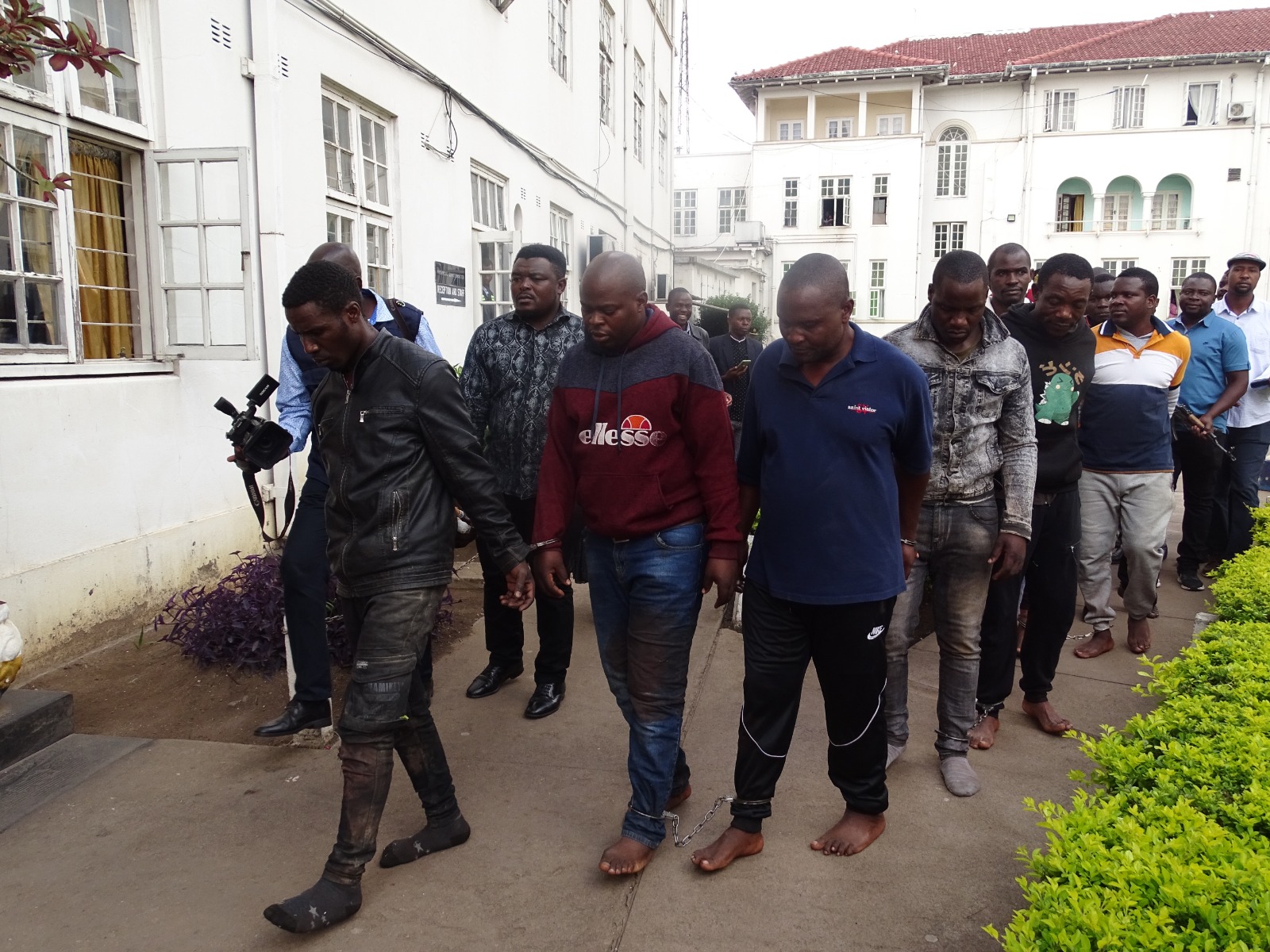Register anew to vote 2018 — Zec


Zimbabwe Electoral Commission chairperson Justice Rita Makarau, flanked by her deputy Mr Emmanuel Magade and Chief Elections Officer Ms Constance Chigwamba, during a meeting with political parties yesterday. —(Picture by John Manzongo)
Tendai Mugabe Senior Reporter—
The Zimbabwe Electoral Commission (ZEC) is crafting a new voters’ roll to replace the existing one, and elegible voters who fail to register in the exercise to be conducted by the commission next year, will not be eligible to vote in the 2018 harmonised elections, the commission’s chairperson Justice Rita Makarau has said. The commission said it would draft a new biometric voters’ roll for 2018, which would be polling station based.
Related…………
After registration using this new technology, a confirmation receipt would be issued by ZEC officials. What this effectively means is that for purposes of voting, names of voters would only appear on a particular polling station.
Speaking during a meeting between ZEC and various political parties at the electoral commission’s offices in Harare yesterday, Justice Makarau said the new voter registration system was likely to start in May next year.
“We are going to come up with a new voters’ roll for 2018,” she said. “The voters’ roll that we are going to use in 2018 will not make any reference to what happened in 2013. Tell all your (political party) members that once ZEC calls for voter registration, we have got to turn up all three million members of our parties. All of them have to turn up for voter registration otherwise they will not be able to vote for our next President, or for you as an MP, or for you as a councillor.
“The reason why is because the old voters’ roll did not capture our biometrics. This new voters’ roll captures our biometrics and is going to be very different to the old voters’ roll. If you registered for 2013, but don’t register for 2018, your picture will not be able to appear on the voters’ roll, and your name will actually not be on the voters’ roll, which is going to be polling station specific.”
Justice Makarau added: “According to our predictions now, we are hoping that the procurement will be done by March and April (next year) and thereafter, we should be able to start the voter registration (in) May and June up to the end of 2017 hopefully — have a voters’ roll by then. Those are our projections.”
She revealed that preliminary work towards polling station based voter registration such as mapping had already commenced.
Said Justice Makarau: “ZEC has commenced the polling station specific voter registration mapping exercise. That exercise is actually unfolding as we speak, and we hope to complete it by 30 November. People are out in your areas mapping polling areas. Briefly, we have polling stations that have already been established for past elections. We are saying people are going to be registered to a particular polling station. Your name will only appear at one polling station as a voter, and you must know that polling station. Mapping is mini-demarcation of wards.”
Responding to a question from the floor on whether the mapping exercise was a precursor to delimitation of constituencies ahead of 2018, Justice Makarau said, “There is not going to be delimitation in 2018. Polling station mapping is confined to existing boundaries of wards and constituencies.”
Giving a presentation on the use of biometric technology, ZEC deputy chief elections officer Mr Utoile Silaigwana, said the technology did not amount to electronic voting and could be used on the voting day.
He said the biometric voter registration technology would only register eligible voters as prescribed by the electoral law. Mr Silaigwana said the two main characteristics of biometric voter registration were the face and the finger prints.
“Biometric voter registration as an option was adopted based on the regional and global experiences, looking at the long-term merits of biometric technology in ensuring credibility and integrity of the voters roll,” he said. “It addresses the issues of suspected multiple voting. It increases transparency of the process and enhances accuracy, currency and security among others.”








Comments